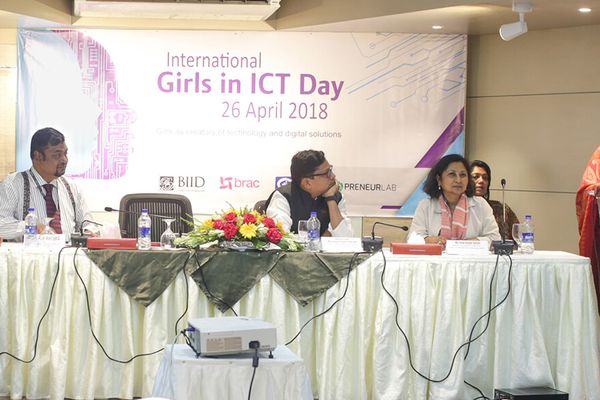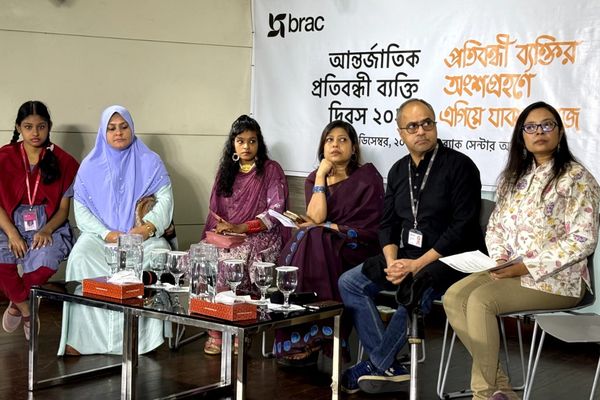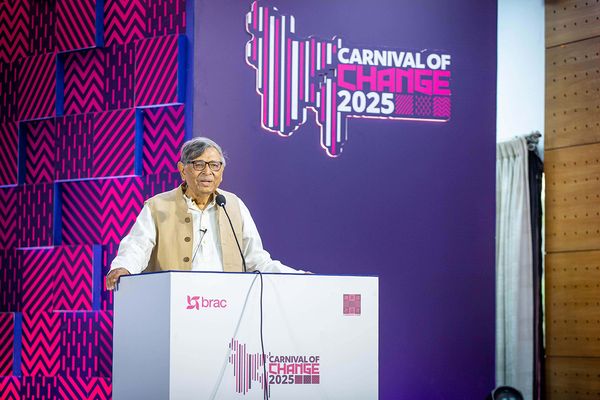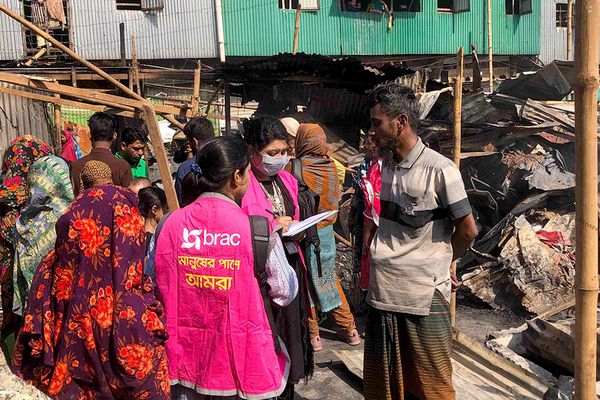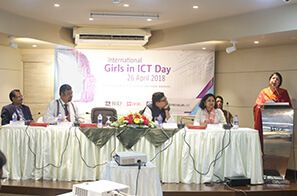
Involvement of women in information and communication technology will significantly strengthen their social and economic empowerment. It will in turn have important contribution in achieving the Sustainable Development Goals particularly the SDG-5. However, the effort to meaningfully expand women's engagement in the ICT sector entails tackling a number of challenges including social and family hurdles, lack of required knowledge and skills, lack of inspiration and fear about security in the virtual space.
These observations were made today on Wednesday (25 April, 2018) in a study presentation on the obstacles for women's participation in the information and communication sector. It was presented at a discussion organised at the BRAC Centre in the capital. Shahid Uddin Akbar, chief executive officer of the Bangladesh Institute of ICT in Development (BIID), delivered the presentation. BIID conducted the study for which 164 female students studying in different universities were interviewed.
Dr Shirin Sharmin Chaudhury, speaker of Bangladesh Parliament, was present at the event as the chief guest at the event with Zunaid Ahmed Palak, state minister for ICT and lawmaker, attending as special guest. BIID, BRAC, Plan International Bangladesh and Preneurlab jointly organised the programme on the occasion of International Girls in ICT Day to be observed on 26 April.
Tania Nusrat Zaman, head of child protection, Plan International Bangladesh, gave the welcome speech. KAM Morshed, director of Advocacy for Social Change, Technology and Partnership Strengthening Unit, BRAC, and Rabiul Alam Chowdhury, head of IT, Plan International, forwarded the recommendations to widen the scopes for women's participation in the sector.
The study observes that if women's participation in the ICT sector can be increased from the current 33.7 per cent to 82 per cent, it will result in 1.6 per cent more GDP growth. This achievement would help the country make stronger strides towards its SDG targets.
In this interview-based study three major challenges for ICT education for young women have been referred which are, bringing change in the perception of young women about ICT education, lack of knowledge and skills in ICT and lack of required skills to engage in the sector.
Dr Shirin Sharmin Chaudhury said in her speech stressed three areas of work to strengthen women's participation in ICT sector which are, undertaking focused effort to popularise the sector among women, recognise ICT as a specialised sector requiring specialised human resources and spread the message that it is a sector that will reconstruct the future.
"The government targets to ensure equal stake of men and women by 2030. To achieve the target the government has undertaken digitalisation initiatives with equal emphasis on the rural and urban areas, which will continue in future," he further said.
Emphasising IT education she suggested that 'IT scholarship' may be a convenient motivation to create awareness among students.
Zunaid Ahmed Palak said that to boost youth employment in the ICT sector the Bangladesh government will train 300 thousand youths, both men and women, by 2021. "We have reserved 20-30 per cent quota for women trainees in this initiative," he further said, pointing out that two million youth enter the country's job market every year.
Participants in the open discussion stressed updating of curriculums for ICT and digital technology education to broaden the equal opportunity space, motivating more women to actively participate in the sector and establishing women-friendly workplace.
High officials from the government and international organisations and representatives from the NGOs were also present at the event.
The International Telecommunication Union in collaboration with the United Nations has been celebrating the day on the fourth Thursday of April for some years now. Since 2011 more than 30 thousand women have been celebrating the day in 166 countries across the world.
